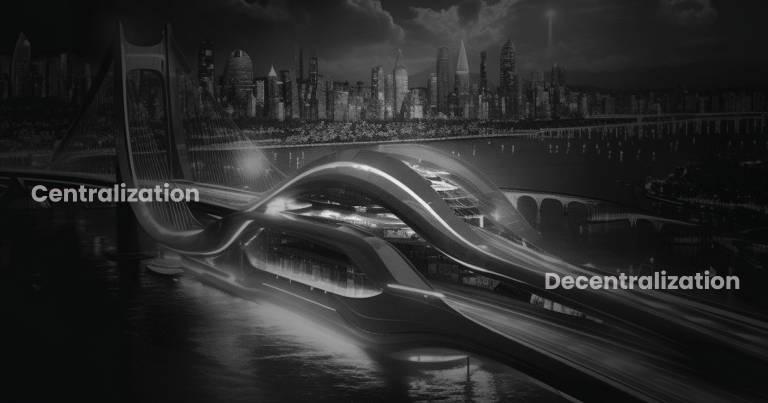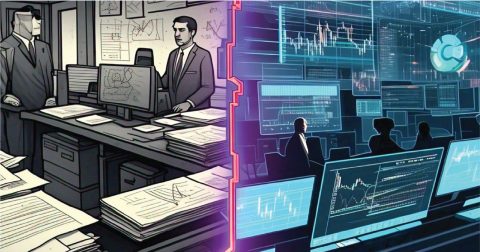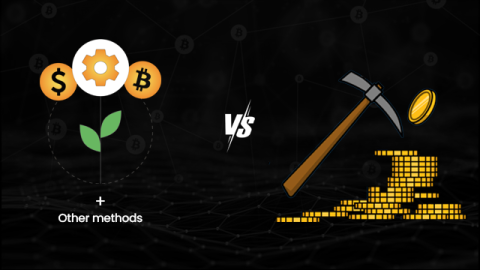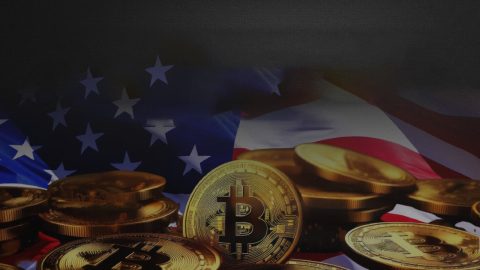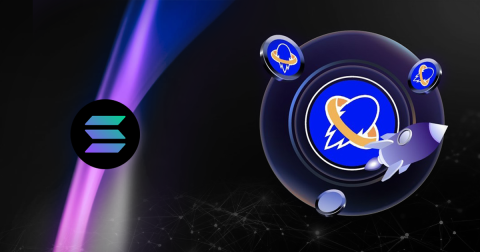TL;DR
In this blog, we’ll discuss how AI is transforming both centralized and decentralized finance, improving security and changing how we trade and make decisions. Alongside this, we’ll talk about how AI is bringing the blockchain world and traditional systems together, making markets faster, smarter, and more effective.
Introduction
For decades, traditional finance (TradFi) and decentralized finance (DeFi) have been on opposite ends of the financial spectrum. Centralized markets, like traditional stock exchanges and banks, thrive on regulation, structure, and control. Decentralized markets, powered by blockchain, promise autonomy, transparency, and borderless transactions.
But what if they didn’t have to compete?
AI is emerging as the missing link, allowing centralized finance (CeFi) and decentralized finance (DeFi) to complement each other rather than exist in silos. From high-frequency trading (HFT) in TradFi to self-executing smart contracts in DeFi, AI is unlocking new levels of efficiency and strategy-driven automation.
Here’s how AI is shaping both worlds—and why crypto investors, traders, and institutions should pay attention.
AI’s Role in Centralized Markets
The Problem: Outdated Systems in a High-Speed Market
Centralized markets stocks, forex, commodities—have relied on human traders, analysts, and institutions to make decisions. But as markets grew in complexity, human speed and accuracy couldn’t keep up.
- Speed matters – milliseconds define profit and loss.
- Volume is overwhelming – billions of trades occur daily.
- Human bias persists – emotions often cloud decision-making.
AI agents are solving these problems.
They are becoming an essential tool for driving transformation in financial markets. By automating critical processes, reducing human error, and increasing trading speed, AI has become a must-have in centralized markets.
How AI Is Reshaping Centralized Systems
- Algorithmic & High-Frequency Trading (HFT): AI-driven algorithms analyze massive datasets, detect patterns, and execute trades in fractions of a second—something no human trader can replicate. Firms like Two Sigma and Renaissance Technologies are already leveraging AI to outpace the market. Their trading systems powered by AI process large amounts of information from multiple financial markets, making trades with unmatched accuracy and velocity.
- Predictive Analytics for Institutional Investors: AI models process global financial data, economic indicators, and even sentiment analysis from news sources to predict price movements with greater accuracy.
- Fraud Detection & Market Manipulation Prevention: AI monitors transactions to flag anomalies, insider trading, and price manipulations—enhancing market integrity.
- AI-Powered Risk Management: Hedge funds and banks use AI to simulate market conditions, assess risk exposure, and adjust portfolios accordingly.
Beyond trading, financial institutions are increasingly leveraging AI across various functions. They employ it for risk assessment, fraud detection, and customer service through chatbots and robo-advisors. A PwC study indicates that 52% of financial institutions are actively investing in AI to optimize operations and improve customer service.
AI’s Impact on Decentralized Markets
Now, let’s switch gears and talk about how AI is affecting decentralized markets….
The Problem: DeFi’s Scalability, Security, and Efficiency Issues
While DeFi offers financial freedom and decentralization, it still struggles with:
- Slow transaction speeds compared to TradFi.
- Smart contract vulnerabilities leading to hacks.
- Liquidity challenges limiting large-scale adoption.
AI is tackling these pain points head-on.
How AI is Revolutionizing DeFi
- AI-Powered Smart Contracts: AI optimizes and self-corrects smart contracts, reducing vulnerabilities and security risks. Platforms like Chainlink are enhancing trustless transactions using AI-driven oracle networks.
- Automated Market Making (AMM): AI improves liquidity pools by adjusting token allocations dynamically based on market conditions. This is particularly useful in decentralized exchanges (DEXs) like Uniswap and Curve Finance.
- DeFi Lending Optimization: AI-driven credit risk analysis enables more accurate and fair crypto lending rates, reducing the risk of defaults.
- Autonomous Trading Bots: AI agents execute trades across multiple DEXs simultaneously, optimizing price execution for traders and liquidity providers.
AI as the Bridge: Merging CeFi & DeFi
AI has the special potential to serve as a bridge between decentralized and centralized markets. With the development of financial ecosystems, these markets need not be siloed; AI can connect both sides and enable them to complement each other instead of competing.
AI Benefits in Market Connectivity
The Challenges of AI in Financial Markets
While AI offers enormous benefits, it’s not without its challenges. The integration of AI in both centralized and decentralized markets presents several hurdles that must be overcome.
The Future of AI and connectivity between Centralized and Decentralized Markets
As AI is no longer a distant concept; it’s reshaping industries right now, especially in how centralized and decentralized markets connect. As we continue to push boundaries,expect four major shifts in financial markets:
Example – Ocean Protocol
Example – Google’s federated learning system
Example – Tesla’s Autopilot
Example – AWS’s AIaaS offerings
Real-World Projects Leading the Way
- Fetch.ai: Autonomous AI agents for DeFi, supply chains, and IoT.
- Bittensor: A peer-to-peer network for machine learning, rewarding contributors with crypto.
- Numerai: A hedge fund crowdsourcing AI models via encrypted data and crypto rewards.
- NEAR Protocol’s AI Roadmap: Integrating AI agents into blockchain apps for dynamic smart contracts.
- Decentralized AI Society (DAIS) : Hedera, NEAR Foundation and Secret Network
- EQTY Lab’s Verifiable Compute Brings Trust to AI with Hedera, EQTY Lab, Intel, and NVIDIA unveiled Verifiable Compute using Hedera Blockchain.
- Ocean Protocol: Ocean Protocol enables data sharing while preserving ownership, fostering a responsible data economy that prioritizes user privacy.
- SingularityNET: A decentralized marketplace for AI services, enabling developers to monetize algorithms.
Closing Thought
AI isn’t just tweaking financial markets; it’s fundamentally altering the way financial systems operate as a whole. Centralized finance is evolving into a data-driven powerhouse, while decentralized finance is shedding its inefficiencies to become more secure, scalable, and intelligent. The days of rigid market structures are over. AI is the catalyst unifying TradFi and DeFi, forging a future where speed, precision, and autonomy define success.
For traders, investors, and crypto enthusiasts, the debate isn’t whether AI will reshape financial markets, but how swiftly you’ll integrate its power. Forward-thinking financial institutions, by integrating AI, will define tomorrow’s market.

